
The quest to create a rapid-firing gun had been underway since medieval times but it was not until the 19th century that machine guns came into being. In 1861, American inventor Richard Gatling patented the Gatling gun, which was the first firearm to offer controlled, sequential firing with mechanical loading. Gatling guns were first used in the American Civil War (1861-65) and Franco-Prussian War (1870-71).
The British Army deployed the Gatling gun for the first time in what is now Ghana during the Third Anglo-Ashanti War (1873-74). A British force commanded by General Sir Garnet Wolseley utilised new technologies such as telegraph lines, rockets and Martini-Henry rifles against Ashanti warriors, although it appears that his Gatling guns were not extensively used.
The Gatling became a part of the British Army’s arsenal during subsequent colonial conflicts. This included the Second Anglo-Afghan War (1878-80) and – most significantly – the Anglo-Zulu War of 1879. Although most famous for the Battles of Isandlwana and Rorke’s Drift, the most decisive battle was the concluding engagement at the Zulu capital of Ulundi.
Esta historia es de la edición Issue 116 de History of War.
Comience su prueba gratuita de Magzter GOLD de 7 días para acceder a miles de historias premium seleccionadas y a más de 9,000 revistas y periódicos.
Ya eres suscriptor ? Conectar
Esta historia es de la edición Issue 116 de History of War.
Comience su prueba gratuita de Magzter GOLD de 7 días para acceder a miles de historias premium seleccionadas y a más de 9,000 revistas y periódicos.
Ya eres suscriptor? Conectar
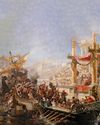
NAUMACHIA TRUTH BEHIND ROME'S GLADIATOR SEA BATTLES
In their quest for evermore novel and bloody entertainment, the Romans staged enormous naval fights on artificial lakes
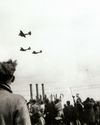
OPERATION MANNA
In late April 1945, millions of Dutch civilians were starving as Nazi retribution for the failed Operation Market Garden cut off supplies. eet as In response, Allied bombers launched a risky mission to air-drop food

GASSING HITLER
Just a month before the end of WWI, the future Fuhrer was blinded by a British shell and invalided away from the frontline. Over a century later, has the artillery brigade that launched the fateful attack finally been identified?
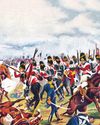
SALAMANCA
After years of largely defensive campaigning, Lieutenant General Arthur Wellesley went on the offensive against a French invasion of Andalusia

HUMBERT 'ROCKY'VERSACE
Early in the Vietnam War, a dedicated US Special Forces officer defied his merciless Viet Cong captors and inspired his fellow POWs to survive
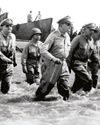
LEYTE 1944 SINKING THE RISING SUN
One of the more difficult island campaigns in WWII's Pacific Theatre saw a brutal months-long fight that exhausted Japan’s military strength

MAD DAWN
How technology transformed strategic thinking and military doctrine from the Cold War to the current day
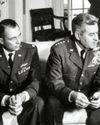
BRUSHES WITH ARMAGEDDON
Humanity came close to self-annihilation with the Cuban Missile Crisis, Broken Arrows’ and other nuclear near misses
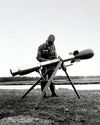
THE DEADLY RACE
How the road to peace led to an arms contest between the USA and USSR, with prototypes, proliferation and the world’s biggest bomb

THE MANHATTAN PROJECT
Einstein, Oppenheimer and the race to beat Hitler to the bomb. How a science project in the desert helped win a war